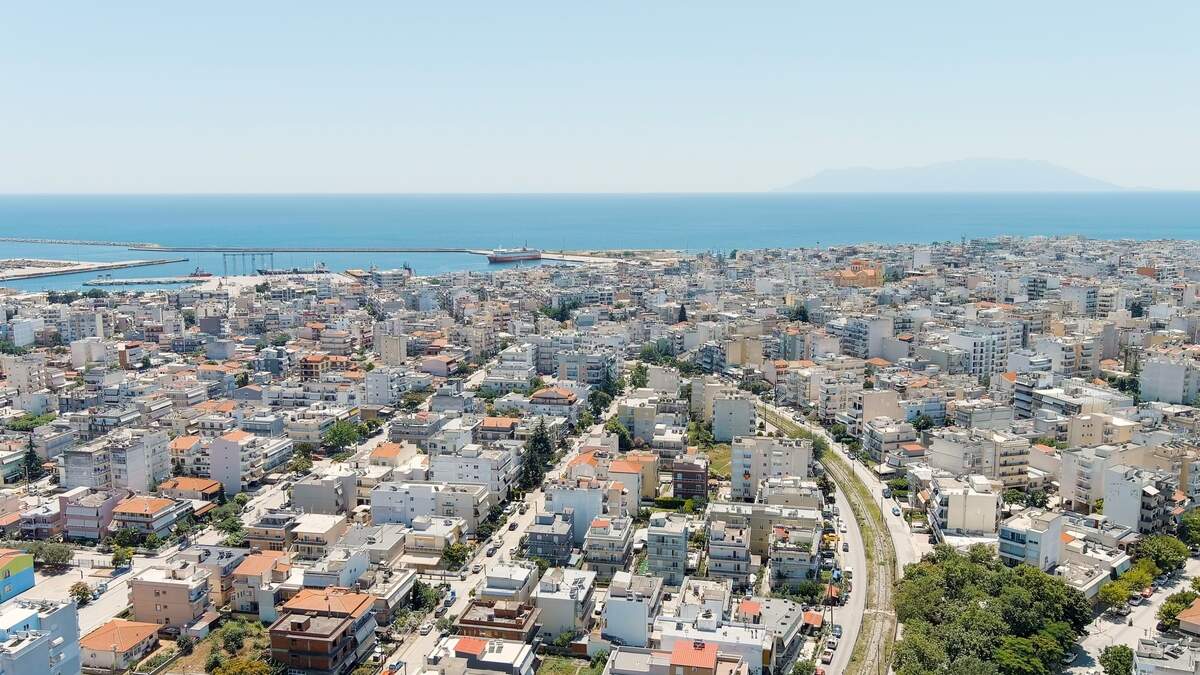Almost every month, Cihan Citak gets into his car, passport in hand, and sets off from Istanbul to Alexandroupolis, a Greek seaside city 40 kilometers from the Turkish border. After a roughly four-hour drive, he walks the crowded aisles of the local supermarket, filling his cart with wine, cheese and other groceries that cost a fraction of what they do back home.
“The kind of olive oil they sell at €10 per litre, you can only buy at double the price” in Turkey, said Citak, the general manager of a food and beverages company, who says he mainly looks for high-quality products at better prices. “On average, my shopping costs one-third of what it would” at home.
Cross-border retail has become routine for many who found that Turkey’s surging food prices and stronger lira make Greece a cheaper alternative for everyday purchases. The trend, while not new, is accelerating: 6% of all Turks crossing the border to Greece in the first nine months of the year were on a shopping run, the highest share of overall travellers since at least 2012, data from the country’s statistics agency show.
Also read:Why shopping in Luxembourg costs so much – and what the government is doing about it
“Turks have invaded Alexandroupolis,” joked Citak, 48. “One may sometimes see hundreds shopping at the store. Then they go to a restaurant and talk about what they’ve bought and for how much.”
Some visitors are sharing their experience on social media channels like Alphabet’s YouTube and ByteDance’s TikTok, racking up thousands of views with videos showing price tags for different products and stores.
A quick glance at supermarket shelves tells the story. At Lidl in Alexandroupolis, many everyday items come noticeably cheaper than in Turkey’s CarrefourSA, though a few basics still favour Turkish prices. Minced beef, for example, costs €9.36 per kilogram in Greece compared with €12.10 at home, and beef sausages sell for almost half the Turkish price. Gouda cheese and Kinder chocolates are almost a third of what it costs across the border.
Also read:Majority of Trier businesses call for end to Luxembourg border checks
Behind the trend is Turkey’s pivot to slowing inflation by maintaining elevated interest rates and a strong currency, which helped reverse the flow of shopping trips. Just a few years ago, it was Greeks who arrived from Turkey with bags brimming with groceries, clothing and other goods. Back then, Turkey’s unorthodox monetary policy — driven by President Recep Tayyip Erdogan’s belief that low interest rates would curb surging inflation — kept the lira under pressure and gave euros more spending power.
But since mid-2023, when Erdogan appointed former Merrill Lynch bond strategist Mehmet Simsek as finance minister and returned to more conventional economic management, the balance began to shift. The lira’s real effective exchange rate — an inflation-adjusted measure of its value against foreign currencies — strengthened, and food inflation cooled to 35% from 54%.
For consumers, it means prices are rising at a slower pace but the actual grocery bill has continued to swell. TurkStat’s basket of food and non-alcoholic beverages went up a whopping 144% since Simsek took office through October.
Also read:Dutch travel by bus to buy cigarettes in Luxembourg
The central bank said Friday it expects inflation to close this year above 30%, before almost halving by the end of 2026.
With prices straining households, the main opposition party accused Erdogan of forcing Turks to travel abroad just to stock the cupboard.
“After 23 years, this has become the country that Erdogan has been boasting about,” Republican People’s Party leader Ozgur Ozel said Tuesday.
Shopping day-trips
Just as Greek travel companies once did, operators in western Turkish cities such as Istanbul, Canakkale and Bursa have jumped on the trend, organizing one-day bus tours to Greece’s Alexandroupolis. For around €50 — the cost of a ticket plus an exit fee — Turkish travellers can fill their bags at retail chains such as Lidl, Jumbo or Metro.
Also read:Day trip destinations just one hour from Luxembourg
“People buy everything, including meat and cheese,” said Seckin Igneli, partner at Istanbul-based travel agency Atom Tur. “Many customers also enjoy the cheaper seafood at restaurants.”
Atom’s buses pull out late every Friday and arrive in Alexandroupolis by morning. Customers spend three and a half hours in supermarkets followed by a city tour and some free time, according to the company’s website. By afternoon, the group is back on the road to Turkey.
Muhammet Tamdeger, the owner of Bursa-based agency Gezihane, says his clients often bring back pasta, yogurt or vegetables. “Cheap and good quality.”
Citak plans to keep making trips across the border to take advantage of the lira’s value and escape inflated prices at home. Even if, with so many others thinking the same, the return can be tedious.
“I was there just a few days ago,” Citak said Thursday. “Passport check in the return trip took hours because there was such a long queue.”
